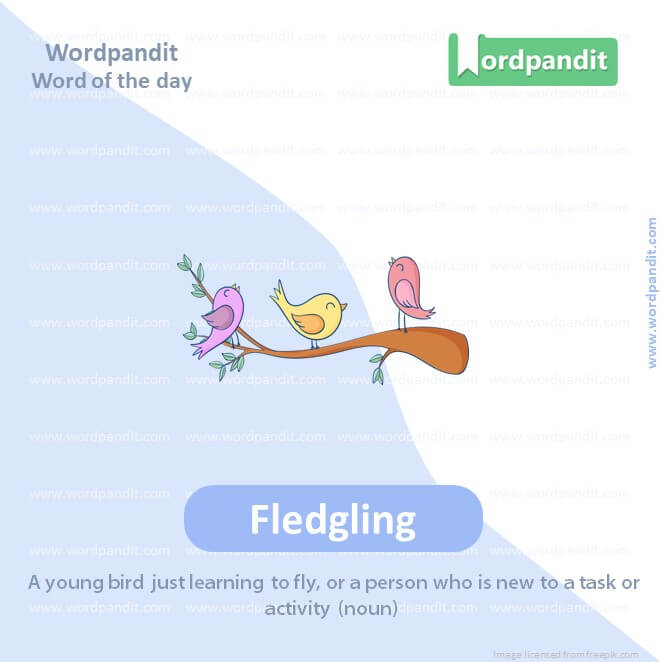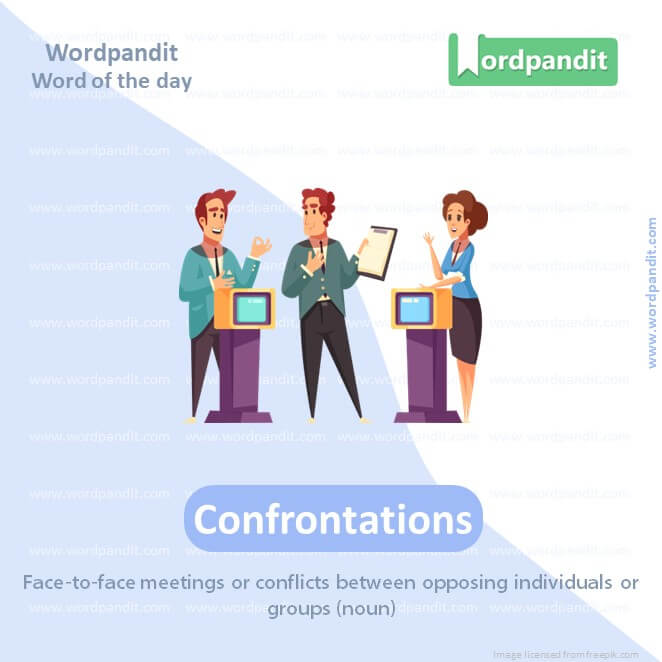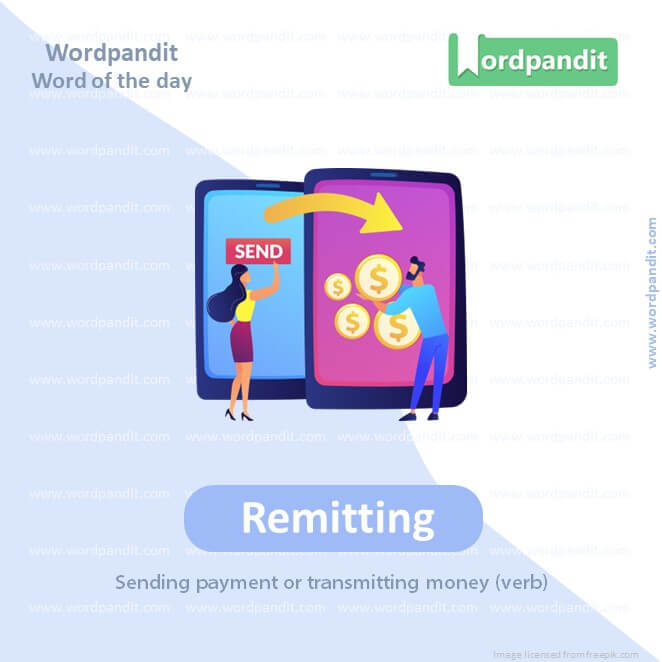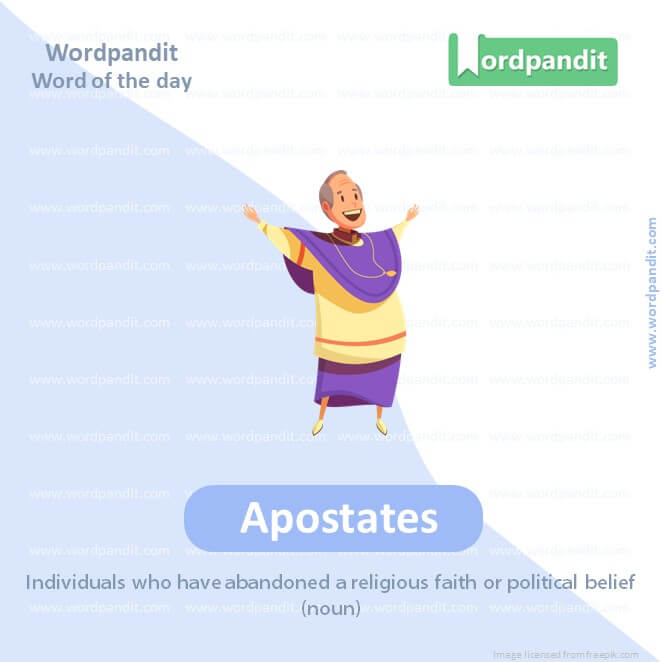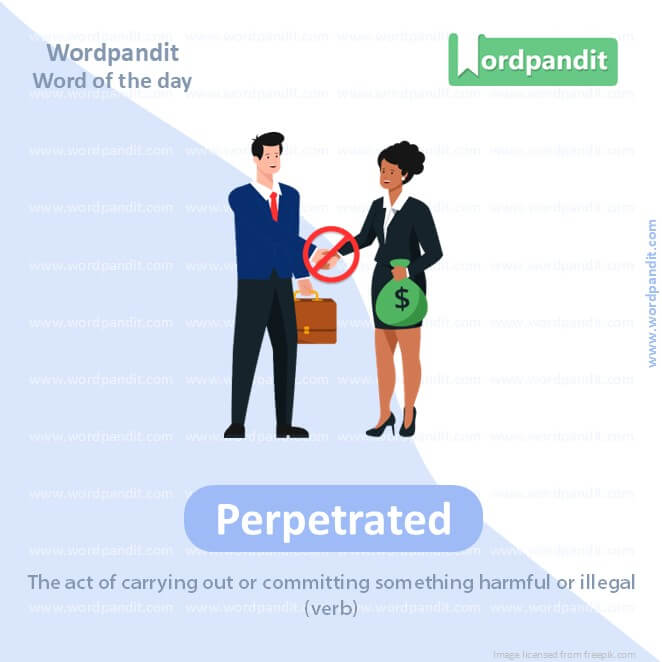Daily Vocabulary from Indian Newspapers and Publications
Welcome to Wordpandit’s Indian Vocabulary Hub
At Wordpandit, we understand the importance of staying rooted in the local context while expanding your language skills. This section focuses on enriching your vocabulary with words and phrases drawn from India’s leading newspapers and publications, ensuring you're learning vocabulary that is practical, relevant, and uniquely Indian.
Why Indian Sources Matter
We believe that the best way to master any language is by immersing yourself in local content. That’s why we carefully curate vocabulary from top Indian publications, including:
- The Hindu
- The Times of India
- The Economic Times
- Hindustan Times
- Live Mint
- The Indian Express
- And many others...
Stay Updated, Stay Relevant
With daily updates from Indian news sources, you’ll be consistently learning words that reflect the trends and shifts in Indian society and culture. Our focus is to provide vocabulary that enhances your understanding of the language in an Indian context.
How Wordpandit Supports Your Goals
Whether you’re preparing for exams, aiming to improve your professional communication, or simply want to stay connected with the latest Indian vocabulary, Wordpandit is here to guide you every step of the way.
Learn with a Practical Approach
Our interactive learning methodology includes real-world examples, engaging activities, and context-specific usage to ensure that every word becomes part of your active vocabulary.
Dive into Indian Vocabulary Today!
Why Choose Wordpandit?
Practical Learning: Focus on words you'll actually encounter in real-world reading, enhancing your comprehension and communication skills.
Diverse Content: From current affairs to scientific breakthroughs, our varied sources expose you to vocabulary across multiple domains.
Effortless Integration: Make Wordpandit a part of your daily routine. Just a few minutes each day can significantly boost your lexicon over time.
Your Path to Vocabulary Mastery
- Visit our Daily Vocabulary section regularly
- Explore new words and their usage in context
- Practice incorporating these words into your own writing and speech
- Track your progress as your vocabulary expands
Start Your Journey Today
Embark on your vocabulary enhancement journey with Wordpandit. By consistently engaging with our daily posts, you'll build a robust vocabulary that serves you well in academic, professional, and personal contexts.
Remember, a word a day keeps linguistic limitations at bay. Make Wordpandit your daily companion in the quest for vocabulary excellence!
WORD-1: Fledgling
Context:
"His fledgling party polled about 3 percent votes and won four seats." - Hindustan Times
Explanatory Paragraph:
The word "fledgling" refers to something that is just beginning or in an early stage of development. It often describes a new organization, activity, or person that is inexperienced or not yet fully established. In the context above, it indicates that the political party is new and just starting to find its footing in the political landscape.
Meaning: A person, organization, or system that is new and inexperienced (noun/adjective)
Pronunciation: FLEJ-ling
Difficulty Level: ⭐⭐ Easy
Etymology: From Middle English *flegeling*, a diminutive of "fledge", meaning to acquire feathers necessary for flight.
Prashant Sir's Notes:
Think of a baby bird that's just learning to fly—uncertain but full of potential. That's what "fledgling" captures—something new but capable of growing. It's commonly used for startups, new authors, or political movements.
Synonyms & Antonyms:
Synonyms: novice, beginner, rookie, neophyte, startup
Antonyms: veteran, expert, seasoned, mature
Usage Examples:
- The fledgling company struggled to attract investors in its first year.
- As a fledgling artist, she still had a lot to learn about technique and style.
- The fledgling democracy faced numerous challenges in establishing fair governance.
- Despite being a fledgling writer, his debut novel received critical acclaim.
Cultural Reference:
"In the world of tech, even the most fledgling ideas can turn into billion-dollar companies." - A paraphrased idea often seen in startup culture literature like *The Lean Startup*
Think About It:
Why might society place extra value or scrutiny on fledgling movements or organizations?
Quick Activity:
Write two sentences: one using "fledgling" to describe a person, and one using it to describe an organization. Share them with a friend or study partner.
Memory Tip:
Think of a "fledgling" bird just learning to fly—flapping awkwardly but ready to soar. New things often start this way!
Real-World Application:
"Fledgling" is widely used in business, politics, and creative industries to describe early-stage ventures, movements, or talents that are still developing.
WORD-2: Confrontations
Context:
"The damaged image of the Benjamin Netanyahu government could tie up Israel’s resources in its indirect confrontations with Iran." - Hindustan Times
Explanatory Paragraph:
"Confrontations" refers to situations where two or more parties face off, often in conflict or disagreement. These can range from verbal disputes and ideological clashes to actual military or physical encounters. In the context above, it implies that Israel is engaged in ongoing indirect conflicts with Iran, possibly through diplomacy, cyber warfare, or regional proxy tensions.
Meaning: Hostile or argumentative situations or encounters between opposing parties (noun – plural)
Pronunciation: kon-fruhn-TAY-shunz
Difficulty Level: ⭐⭐⭐ Intermediate
Etymology: From Latin *confrontare*, meaning "to border on, to face", formed from *com-* (together) + *frontem* (forehead or front)
Prashant Sir's Notes:
Always think of a confrontation as a face-to-face situation—there's a tension or challenge involved. It doesn't always have to be physical; it could be political, social, or ideological. Watch out for its use in international affairs and political commentary.
Synonyms & Antonyms:
Synonyms: clashes, conflicts, disputes, encounters, altercations
Antonyms: agreements, reconciliations, truces, understandings
Usage Examples:
- Several confrontations broke out between protestors and the police during the rally.
- The teacher tried to avoid direct confrontations with students by fostering dialogue.
- Years of political confrontations have destabilized the region.
- Online platforms are increasingly becoming arenas for ideological confrontations.
Cultural Reference:
"The Cold War was marked by indirect confrontations between the U.S. and the Soviet Union, most notably in Korea, Vietnam, and Afghanistan." - Common historical interpretation
Think About It:
Can confrontations ever lead to positive change, or are they inherently destructive?
Quick Activity:
List two types of confrontations you've read about in the news (e.g., political, social, military) and write one sentence for each using the word "confrontations".
Memory Tip:
Think of "confront" as “coming face to face”—so "confrontations" are the moments or situations when people or groups do exactly that.
Real-World Application:
The term "confrontations" is frequently used in journalism, political analysis, and social discourse to describe tensions between nations, ideologies, or individuals—especially when there's a risk of escalation.
WORD-3: Remitting
Context:
"The government of Gujarat passed an order remitting their sentence, setting them free." - Hindustan Times
Explanatory Paragraph:
The word "remitting" in this context refers to reducing or canceling a punishment, especially one imposed by law. It implies an official decision to show leniency, often on humanitarian, political, or legal grounds. In the sentence above, the government chose to lessen or waive the remainder of the prison sentence, effectively releasing the individuals involved.
Meaning: To cancel or reduce a punishment or debt (verb – present participle)
Pronunciation: ruh-MIT-ing
Difficulty Level: ⭐⭐⭐ Intermediate
Etymology: From Latin *remittere*, meaning "to send back, release", from *re-* (back) + *mittere* (to send)
Prashant Sir's Notes:
"Remitting" is often used in legal or official contexts. Think of it as an act of relief—when something harsh (like a sentence or a fee) is softened, reduced, or even completely lifted. It's also seen in banking contexts (sending money), but here it's used in the judicial sense.
Synonyms & Antonyms:
Synonyms: pardon, cancel, forgive, reduce, suspend
Antonyms: impose, enforce, charge, penalize
Usage Examples:
- The president is considering remitting the sentences of several prisoners on humanitarian grounds.
- The court found no reason for remitting the fine imposed on the company.
- The charity organization is focused on remitting medical bills for underprivileged patients.
- Remitting taxes during natural disasters can provide relief to affected communities.
Cultural Reference:
"During religious festivals in some cultures, governments occasionally announce remitting of minor sentences as a goodwill gesture." - Common practice in parts of South Asia and the Middle East
Think About It:
Should governments have the power to remit criminal sentences, or should that decision lie solely with the judiciary?
Quick Activity:
Write a short paragraph explaining how remitting a sentence could impact both the individual and society. Try to use the word “remitting” at least once.
Memory Tip:
Think of “remitting” as “releasing” or “removing” a burden—like sending a punishment away. “Re” (back) + “mit” (send) = send it back, or take it off.
Real-World Application:
"Remitting" is commonly seen in legal documents, news reports about pardons, or financial transactions. It's important for understanding policies on justice, governance, and even international finance.
WORD-4: Apostates
Context:
"These groups bore a militant aversion to minority Shia Muslims, considered heretical apostates by Salafi and Sunni orthodoxy." - Hindustan Times
Explanatory Paragraph:
"Apostates" refers to individuals who abandon or renounce their religion, beliefs, or political allegiance. The term is often used in religious contexts, typically with a negative connotation, especially when someone is seen as betraying the core tenets of a faith. In the sentence above, certain radical groups view Shia Muslims as "apostates"—people who have deviated from what those groups consider the true path of Islam.
Meaning: People who renounce or abandon a religious or political belief or cause (noun – plural)
Pronunciation: uh-PAW-stayts
Difficulty Level: ⭐⭐⭐⭐ Advanced
Etymology: From Greek *apostates*, meaning "deserter," from *apostanai* – "to stand apart, to revolt"
Prashant Sir's Notes:
This word carries strong emotional and cultural weight. In many societies, being labeled an "apostate" is dangerous and often used to justify exclusion or violence. Always consider the context and sensitivity when using or analyzing this word.
Synonyms & Antonyms:
Synonyms: defector, deserter, heretic, dissenter, nonconformist
Antonyms: believer, adherent, loyalist, devotee
Usage Examples:
- In some countries, apostates face legal punishment for renouncing the state religion.
- The group labeled former members as apostates and publicly condemned them.
- Throughout history, apostates have often been at the forefront of social and religious change.
- She was called an apostate for abandoning her political party and speaking out against its policies.
Cultural Reference:
"Apostasy has been historically punished in various religions, including Christianity and Islam, with harsh penalties such as excommunication or even death in extreme regimes." - Based on historical records
Think About It:
Should individuals have absolute freedom to change their beliefs, even if society or religion condemns it? What are the boundaries, if any?
Quick Activity:
Research a historical or modern figure considered an apostate. Write 2–3 lines summarizing their story and how society responded to their decision.
Memory Tip:
Think of “apostate” as someone who “stands apart” (from the faith or belief system)—just like its Greek root *apostanai* suggests. A = away, and "post" = position or stance.
Real-World Application:
"Apostates" is a term used in discussions around religious freedom, extremism, political dissent, and social reform. Understanding it is essential when analyzing ideological conflicts and human rights issues.
WORD-5: Perpetrated
Context:
"Although Iran-backed forces have perpetrated several crimes against Iraqi Sunnis in the past, IS displayed its sectarian ruthlessness in massacres like that of Camp Speicher in 2014." - Hindustan Times
Explanatory Paragraph:
The word "perpetrated" is used to describe the act of committing a harmful, illegal, or violent deed. It’s often reserved for serious offenses like crimes or atrocities. In the given sentence, it refers to the violent acts or crimes committed by certain groups against a community, emphasizing the seriousness and brutality of those actions.
Meaning: To carry out or commit (a harmful, illegal, or immoral action) (verb – past tense)
Pronunciation: PUR-puh-tray-tid
Difficulty Level: ⭐⭐⭐ Intermediate
Etymology: From Latin *perpetratus*, past participle of *perpetrare*, meaning "to accomplish" or "to perform" (especially something evil)
Prashant Sir's Notes:
“Perpetrated” is often used in news and legal contexts. It always implies wrongdoing—be it violence, fraud, or corruption. Remember, you never perpetrate something good; it’s always linked to harm or illegality.
Synonyms & Antonyms:
Synonyms: commit, execute, inflict, perform, carry out
Antonyms: prevent, avoid, halt, stop
Usage Examples:
- The hackers perpetrated a large-scale cyberattack on the government database.
- The crimes were perpetrated under the cover of night to avoid detection.
- The documentary highlights the atrocities perpetrated during the civil war.
- Those who perpetrated the fraud were eventually brought to justice.
Cultural Reference:
"The worst crimes were not perpetrated by monsters but by ordinary people who accepted the status quo." – A paraphrased sentiment from Hannah Arendt’s work on the 'banality of evil'
Think About It:
Why do some individuals or groups justify the crimes they perpetrate in the name of ideology or belief?
Quick Activity:
Write a sentence using “perpetrated” in a political, criminal, and personal context. Reflect on how the tone changes with each.
Memory Tip:
Think “perpetrate = perform a problematic act.” The “per” prefix can help you link it to “perform,” but remember—it’s always a **bad** action.
Real-World Application:
You'll see “perpetrated” frequently in news reports, legal documents, and documentaries to describe serious actions like war crimes, fraud, or violent attacks. It's crucial for media literacy and legal comprehension.



